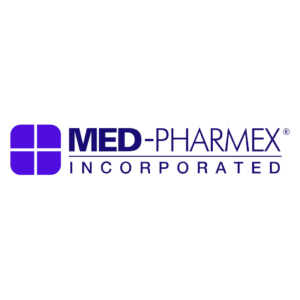As healthcare providers, the first assessment of every patient begins with their vital signs. As a healthcare business owner, you should be equally familiar with the vital signs of your business; this is simply sound business management 101. But, are you aware of what a buyer or investor will want to know about your business vital signs when assessing a potential acquisition or merger?
Know Your Numbers
With all of the challenges trials and tribulations and successes of a healthcare business, it may be assumed that the business is healthy as long as it is generating enough profit to pay the bills. However, it is critical, that the true vital signs of a business are reviewed and understood on a regular basis… at least quarterly, if not monthly (not just at the end of the year). Banks, partners and potential acquirers will expect you to be not only familiar with these metrics but have a firm, managerial focus on them.
The core vital signs are measurements of the body’s most basic functions. The four main vital signs routinely monitored by medical professionals and health care providers include Body temperature, Pulse rate, Respiration rate (rate of breathing) and Blood pressure (Blood pressure is not considered a vital sign, but is often measured along with the vital signs.)
The Vital Signs of a Successful Business
Vital signs are useful in detecting or monitoring medical problems. The vital signs for a healthcare enterprise are just as critical to the life and longevity of the business. While not always as simple to measure, the vital signs include:
- Revenue Trajectory
- Margins & Profitability
- Balance Sheet / Assets & Debt Ratios
- Contracts, licenses and permits
- Human Resources
- Market Demographics (read Market Pulse)
Look At Your Business Vital Signs Through The Eyes of A Buyer or Investor
- Revenue: What is the actual trend and trajectory of your collected revenue?
- What are the risks and opportunities for continued revenue growth?
- Do you report on a cash or accrual basis? Most acquirers prefer an accrual basis. If you report on a cash basis, you should expect additional scrutiny if not a full cash to accrual analysis.
- Quality of earnings – “QofE”, or financial accounting due diligence usually completed by an independent accounting firm. A QofE analysis takes a deep dive into a company’s financial and operating information emphasizing confirmation of reporting accuracy and earnings before interest, taxes, depreciation, and amortization, or EBITDA.
- Margins & Profitability: Most healthcare businesses of a similar size will fall into a fairly predictable range of profitability. Are your Cost of Goods Sold (COGS) reported in line with their monthly use? Do you make bulk purchases to take advantage of price discounts or annual tax planning but actually cover multiple months of usage? Take note that this practice can skew your monthly results and impact reported profitability – particularly if it spans a year-end or fiscal reporting period.
- Balance Sheet / Assets & Debt: We can’t stress this point enough… Your Balance Sheet Matters! Your balance sheet contains vital numbers such as accounts receivable and other assets along with the debt load associated with the business. Have you cleaned up your accounts receivable to reflect truly collectable receivables? Are your payables and long term liabilities being accurately presented on the balance sheet?
- Contracts, licenses and permits: Your contracts, licenses and permits are key assets of the business. Start by performing an inventory of these documents and catalogue with an overview of their terms, expiration/renewal dates and assignment provisions, if any.
- Human resources: It is wise to realize that the strength of any business lies in the strength of the people that make it happen each day. Are your comp plans well laid out with specifics that can be reviewed and evaluated? Do you have any employment agreements? Gather all non-competition or at a minimum non-solicitation and confidentiality agreements with key personnel.
- M&A Market demographics (read Market Pulse): Knowing the current pulse of the market in your specific sector is always one of the three decision spheres vital in assessing when you may decide to explore your strategic options including a sale or possible merger of the business. (The other two decision spheres include the business performance outlined above and your personal goals for a transaction. When these three planets align is the right time to explore the sale, recapitalization or merger of your business!)
For more information on the vital signs for your healthcare business and what all this means for the valuation and strategic options for your business, contact us or call 800-719-1555.
Paragon Ventures – Client Focused, Healthcare Transaction Experts:
We are not just market makers, we are trusted advisors and partners with our clients. We listen to your specific business and personal goals. Then, When The Time Is Right – Paragon Ventures™ will deploy our professional training, over 28 years and 300+ healthcare transactions to develop and execute the best possible transaction for your business. All inquiries held confidential.
For more information, confidential email contact us or call 800-719-1555.





